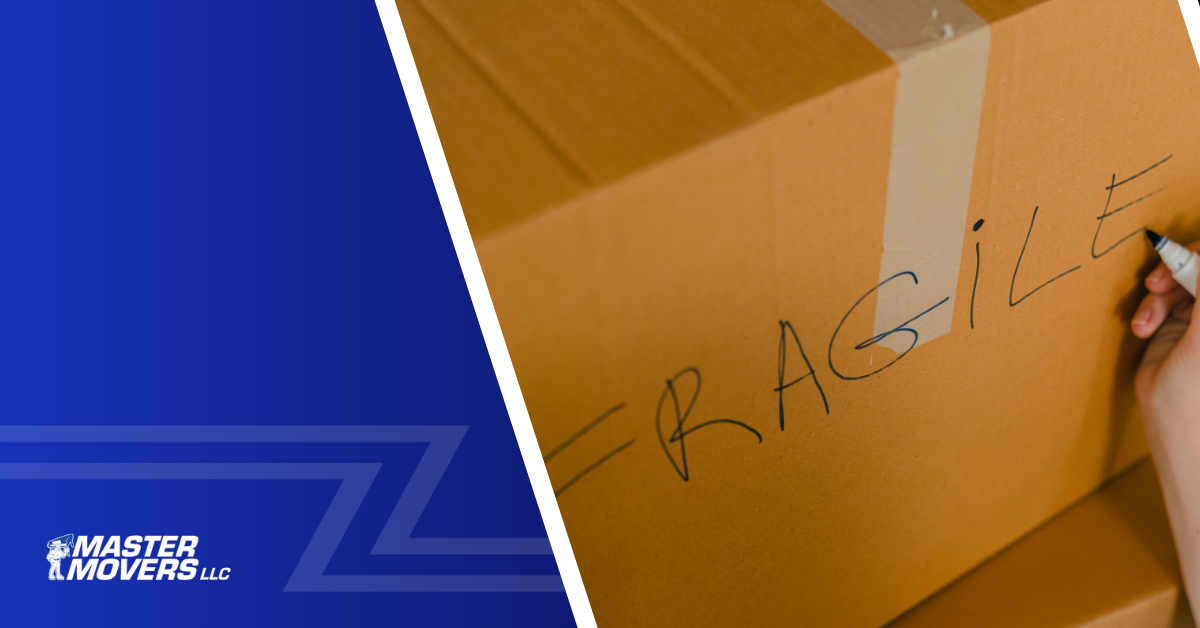How to Create a Moving Checklist: The Ultimate Timeline

Moving to a new home ranks among life's most stressful events. However, knowing how to create a moving checklist can transform chaos into an organized, manageable process. A well-structured moving checklist timeline ensures nothing gets overlooked, from booking movers to forwarding your mail. This comprehensive guide breaks down every task you need to complete, starting two months before moving day and extending beyond your arrival. Whether you're relocating across Nashville or across the country, following this systematic approach will help you organize your move efficiently and reduce last-minute panic.
What to Do Two Months Before Moving Day
Starting your moving preparations eight weeks early gives you ample time to handle major decisions. This early planning phase sets the foundation for a successful relocation.
Set a Moving Budget
Determine how much you can realistically spend on your move. The average cost of an intrastate move is approximately $1,250, while long-distance moves average $4,890. Factor in expenses like moving services, packing supplies, travel costs, and potential storage fees. Creating a detailed budget prevents financial surprises and helps you make informed decisions about which services to hire versus handling yourself.
Create a Moving Binder
Organize all moving-related documents in one central location. Include quotes from moving companies, receipts, inventory lists, and important contact information. A moving binder serves as your command center, keeping critical information accessible throughout the entire process. Use dividers to separate categories like contracts, receipts, and checklists.
Research and Book Your Moving Company
Start researching professional movers immediately. Read reviews, verify licensing with the Tennessee Department of Commerce and Insurance, and request quotes from at least three companies. Professional movers often book up quickly, especially during peak summer months. Comparing multiple estimates helps you find the best value while ensuring quality service.
Start Decluttering Your Home
Go through each room and decide what to keep, donate, or discard. The less you move, the lower your costs and the easier unpacking becomes. Host a garage sale, donate items to local organizations like Goodwill Nashville, or list items on marketplace platforms. Decluttering now saves money on moving trucks and reduces packing time later.

Organizing Your Move Six Weeks Before
Six weeks out, your moving preparation tips shift toward acquiring supplies and managing logistics. This phase bridges planning and actual packing.
Order Moving Supplies
Purchase boxes in various sizes, packing tape, bubble wrap, and markers. Specialty boxes for dishes, wardrobes, and televisions protect fragile items during transit. Many moving companies sell supplies, or you can find free boxes at grocery stores and liquor stores. Stock up on more supplies than you think necessary.
Measure Furniture and New Space
Measure doorways, hallways, and rooms in your new home. Compare these measurements against your largest furniture pieces to ensure everything fits. This step prevents moving day surprises when your couch won't fit through the door. Create a floor plan to visualize furniture placement before arrival.
Use Up Pantry Items
Start consuming perishable foods and pantry staples. Moving food adds unnecessary weight and complications. Plan meals around existing ingredients and avoid grocery shopping for bulk items. Donate unopened non-perishables to Second Harvest Food Bank of Middle Tennessee if you have excess.
Check in with Friends and Family
Inform loved ones about your moving date. If you need help on moving day, now is the time to ask. Coordinate schedules and confirm commitments. Even if you hire professional movers, extra hands can assist with last-minute tasks.
Organize School Records
Request transcripts, immunization records, and educational documents from your children's current school. Contact the new school district to understand enrollment requirements and deadlines. Having paperwork ready ensures a smooth academic transition.
What to Do One Month Before Moving Day
One month before moving day marks the transition from planning to action. This critical period requires attention to numerous details.
Choose Your Mover and Confirm Arrangements
Finalize your contract with your selected moving company. Review all terms, insurance coverage, and payment expectations. Confirm the moving date, arrival time, and any special requirements. Keep all documentation in your moving binder.
Begin Packing Non-Essential Items
Start packing items you won't need before the move. Books, seasonal decorations, and off-season clothing can go first.
Label
Mark every box with its contents and destination room. Use color-coded labels or numbering systems to track inventory. Clear labeling makes unpacking systematic and prevents lost items.
Separate Valuables
Keep jewelry, important documents, and sentimental items separate. Plan to transport these personally rather than loading them on the moving truck. Consider using a fireproof safe for critical papers.
Arrange for Time Off Work
Request time off for moving day and potentially the day after. Moving is physically exhausting, and you'll need time to oversee the process and begin settling in. Notify your employer early to ensure approval.
Notify Important Parties of Address Change
Update your address with banks, credit card companies, insurance providers, and subscription services. File a change of address form with USPS to forward mail to your new home. Notify the Tennessee Department of Safety and Homeland Security to update your driver's license within 30 days of moving.
Forward Medical Records
Contact your healthcare providers to transfer medical records. Request copies of prescriptions and ask for referrals to doctors in your new area. Schedule final appointments before moving if necessary.
Set up the Internet
Research internet providers at your new address and schedule installation. Many providers require advance notice, and you'll want connectivity immediately upon arrival. Compare plans and promotional offers before committing.

Moving Preparation Tips Two Weeks Before
Two weeks out, intensify packing efforts and handle remaining logistics. This phase demands focus and organization.
Confirm Moving Company and Details
Contact your moving company to reconfirm the date, time, and services. Verify the crew size, truck capacity, and estimated arrival window. Address any last-minute questions or concerns. If you need guidance on relocating to Nashville, check out our step-by-step moving guide for comprehensive information.
Service Your Vehicle for the Move
If driving to your new home, schedule vehicle maintenance. Check tire pressure, fluid levels, and ensure your car is road-ready. A breakdown during the move creates unnecessary stress and delays.
Pack Room by Room with Labels
Continue systematic packing, completing one room before starting another. This approach maintains organization and prevents mixing items from different spaces. Keep an inventory list of boxes and contents.
Clean out Safe-Deposit Box
Visit your bank to empty your safe-deposit box. Transfer contents to your new bank or secure them for personal transport. Close the box to avoid ongoing fees.
Final Week Before Moving Day Checklist
The final week before moving day requires completing last-minute tasks and preparing for departure. Stay focused on these essential activities.
Defrost Freezer and Clean Appliances
Unplug and defrost your freezer at least 24 hours before moving. Clean refrigerators, ovens, and other appliances thoroughly. Dry everything completely to prevent mold during transport.
Pack Essentials and Valuables Separately
Create an essentials box with items needed for the first 24 hours. Include toiletries, a change of clothes, phone chargers, and basic kitchen supplies. Keep this box with you rather than on the moving truck.
Refill Prescriptions
Ensure you have adequate medication for the transition period. Refill prescriptions before moving to avoid gaps in treatment. Research pharmacies near your new home for future needs.
Confirm Utilities at New Home
Contact utility companies to schedule service activation at your new address. Arrange for electricity, water, gas, and trash collection to begin on or before your arrival date. Disconnect services at your current home effective after moving day.
Pack Your Suitcases
Pack personal luggage as if traveling. Include clothing, medications, and personal care items for several days. Having suitcases ready prevents scrambling through boxes for basic necessities.
Plan for the Payment
Confirm payment methods accepted by your moving company. Many require cash, certified check, or credit card payment upon delivery. Have payment ready to avoid delays in unloading.
What to Do on Moving Day
Moving day arrives with its own set of crucial tasks. Stay organized and communicate clearly with your moving crew.
Conduct Final Walkthrough
Walk through your home, checking every room, closet, and storage area. Ensure nothing gets left behind and all windows and doors are locked. Take photos documenting the property's condition.
Supervise Loading Process
Stay present while movers load your belongings. Answer questions about handling specific items and verify inventory lists. Point out fragile boxes requiring extra care.
Secure Your Old Home
Return keys to landlords or real estate agents as arranged. Turn off lights, adjust thermostats, and lock all entry points. Leave forwarding information if necessary.
Grab Some Cash
Have cash available for tipping movers, typically $20-$30 per person for local moves. Cash also covers unexpected expenses like tolls or emergency purchases.
Take Inventory
Check off items as they load onto the truck using your inventory list. This documentation proves invaluable if anything goes missing or gets damaged during transport.

Conclusion
Learning how to create a moving checklist transforms an overwhelming process into manageable steps. Following this moving checklist timeline from two months before through moving day ensures nothing falls through the cracks.
Master Movers understands that successful relocations require careful planning and execution. Our experienced team handles every aspect of your move with professionalism and care, letting you focus on starting your next chapter. Contact Master Movers today for a free quote and discover how we make moving day your easiest day.



